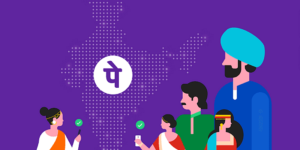“If my therapist saw this, she’d be so disappointed in me,” an inebriated friend giggled as she drank her fifth glass of red wine on a Saturday evening. She went from being a teetotaler to binge drinking in a span of four months — prompting my friends and me to exchange concerned looks.
But she had been seeking help.
In 2017, President Ram Nath Kovind asserted that India was “facing a possible mental health epidemic”. The lockdowns and isolation induced by the COVID-19 pandemic worsened the mental health crisis, and, according to reports from the Centre, nearly 10.6 percent of adults in the country today face some kind of mental disorder.
Mental health awareness has been the difference between life and annihilation for a lot of us today, and while there’s no accounting for how much emotional labour people engaged in the sector have had to do to normalise seeking help, there’s a definitive count somewhere that puts a number on how many lives those efforts have helped save.
That is why it’s important to raise mental health awareness and break the stigma of seeking therapy or expert-led counselling. An interesting and fast-growing mental health startup doing this is .
Founded by Kanika Agarwal in January 2020, just before the pandemic, the Delhi-based SaaS startup focuses on individual therapy and looks at partnering with companies to extend employee assistance programmes.
It offers its services through an app, which not only let users schedule appointments, but does a lot more than that.
MindPeers, the app
Available on Google Play Store (with over a thousand downloads at a 4.5/5 star rating), as well as Apple App Store, the MinePeers app was put together with an aim to offer free tools and resources that are not behind a paywall, unlike their therapy service. From that lens, it’s not that hard to forgive the app’s diamond-in-the-rough interface.
So, for this one, we’ll focus on functionality, not form.
Logging into the app is standard and straightforward. As soon as you’re in, there’s a quick tutorial that runs you through the various free tools you can use. Some of these options are:
- The search bar — this allows one to run through the many resources available for a particular ‘feeling’. So if you’re angry, you can type “angry” into the search, and it’ll show you all the activities you can do using the platform that can help you deal with that emotion, better.
- Think — this tab helps you better understand a particular thought process, such as feeling body conscious or burnout.
- Habits — this option helps you inculcate good habits such as watching the sunset for 10 minutes every day, or journaling for 15 minutes every day.
And so on.
Most of these options are self-help tools that allow one to “check-in” with themselves when they need to. There’s also a tab where if you do avail therapy sessions on MindPeers, your therapist can assign you homework or self-reflective tasks/work.
Experience using the app
What the app offers, at no cost to the user, is quite incredible.
The journaling tab is really fun to use because you’re not only able to spew and store all your mental pontification in a safe place on the internet, but also write letters to your past and your future self — which is quite interesting. If you don’t know where to start, MindPeers also offers several ‘prompts’ which can help you to start, especially when your thoughts overwhelm you.
There’s a games section where three fun, easy games can help you distance yourself from your mind for some time and get a nice mental workout. However, these games get boring quite quickly, and it would be nice if there were some more brain activities to indulge in.
The ‘habits’ tab is a hit favourite. It allows you to set up habits you want to inculcate and prompts you to keep track of the task you set out for yourself over 21 days. It offers options such as ‘give yourself some love’, ‘detox from tech for 20 minutes’, ‘do some breathing exercises’, etc, and you have to go and mark it as done on the app, every day. However, the app doesn’t allow you to add a habit of your own choice.
The ‘feel’ option has some free “feelings” you can explore, but some have ‘locks’ on them. Only your therapist can unlock these options when they feel like you need to access them, which is quite disappointing considering mental health interventions, especially at the right time, are important — but it’s a free platform so you take what you get.
The app also offers guided breathing exercises with visual elements that do help — but it would have been nice to see other guided activities such as meditation, considering that the likes of meditation and mindfulness app Headspace and others have seen some really good traction.
When it comes to booking a therapist on the app, the company has kept the rates quite affordable – around Rs 300 for a single session versus other platforms that charge up to Rs 1,000. However, there is little information about therapists, especially details about the number of years they’ve been practising. This was something users in the review section on Google Play Store brought up as well.
Apart from that, there’s also a dearth of reading material. Access to relevant information is important as the app works in a space where coming across pertinent information helps you understand your mind better.
The verdict
All in all, MindPeers deserves two big thumbs up when it comes to what it is trying to achieve on the platform and the app.
Despite its shortcomings, the startup can count itself among others like – which turned therapy into an AI-powered chatbot exercise – that are coming up with innovative solutions and breaking the stigma around mental health.
I will definitely be sticking around to see what else the app offers.

![You are currently viewing [App Friday] MindPeers focuses on mental health with free resources, but is a work in progress](https://blog.digitalsevaa.com/wp-content/uploads/2022/03/Mindpeers-01-1647524452002.png)








![Read more about the article [Weekly funding roundup] Dip in venture equity inflow but deal momentum remains strong](https://blog.digitalsevaa.com/wp-content/uploads/2021/05/Weeklyimage-1577460362436-300x150.png)